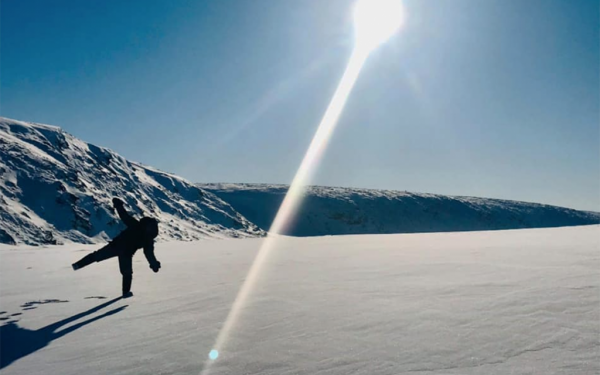“Decolonization is not an Aboriginal problem, it’s a Canadian one”
First Nation Panelists Discuss Memories and Hopes for Aboriginal Education in Canada
Kenneth Deer hasn’t read Bill C-33, the First Nation’s Control of First Education Act. “And I don’t intend to,” he musingly told an audience of approximately 100 people.
A member of the Mohawk community in Kahnawà:ke, Deer is well versed in taking control of one’s own cultural education.
“Change takes place by revolution or evolution,” he said of decolonizing Canada’s educational system.
Alongside Alanis Obomsawin and Lindsay Morcom, Deer joined an Aboriginal panel at Concordia University last Tuesday night to discuss experiences within Canada’s problematic historical teachings and its future.
In 1978, revolution was at the forefront for Deer. In protest to Bill 101, which mandated approximately 300 Mohawk students to be taught in French or English, parents pulled their children out of a Quebec high school.
“We marched from the school all the way back home with banners,” Deer said. “The English media loved it.”
According to Deer, on that Wednesday, the parents sent their children home with the promise that a school catered towards their own culture would be created by Monday. With an understandable delay, the parents administered standardized tests to keep the students distracted and maintain their promise.
“I remember because I was responsible for doing that.” he said about the decoy quizzes given on Monday. “I never corrected that test, I’ll tell you.”
A makeshift school of community centres and a Knights of Columbus hall opened Tuesday for grades seven to 11. They named it the Kahnawà:ke Survival School, which is still open today. “You have to control the education if you want your people, your culture [and] your language to survive,” he said.
An active participant with the United Nations on indigenous rights since 1987, Deer served as the Chairman and Rapporteur of the UN Workshop on Indigenous Media in New York in December 2000. Throughout the talk, Deer spoke of sovereignty and self-determination, defining it as freely pursuing social and economical development. A freedom he said Bill C-33 isn’t the answer for.
“Everything is theirs and they’re just allowing us to use it,” Deer said about Canada’s allocation of money and land to Aboriginal communities.
Obomsawin echoed Deer’s sentiments, saying that the biggest crime of the education system was that they taught Canadian history.
A documentarian of Abenaki descent, Obomsawin was born in New Hampshire but grew up in Quebec. Her upbringing on colonized land led to feelings of humiliation as classroom teachers taught that her language was the devil’s.
“They succeeded in making a lot of our people look so bad and so inferior,” she said. “Whenever I would go there as a young girl, I knew I was going to a very dangerous place.”
Unlike Deer, Obomsawin said she’s excited at the future under the Bill C-33 while acknowledging much debate is still to be had. She referenced the prophecy predicting that the seventh generation removed from 1960 would finally decolonize their people and restore freedom. 1960 is the year that Canada allowed Aboriginal peoples to vote without renouncing their status under the Indian Act.
“This is now; it is happening now,” she said about today’s youth fulfilling the prophecy. “I have never seen young people so sure and so strong about where they’re going.”
“It’s so strong and so beautiful that I cannot be discouraged.”
A last minute replacement, Lindsay Morcom was not ill-prepared to discuss her experiences researching and teaching Aboriginal linguistics at Queen’s University. Of Métis descent—which is a mix of First Nation and European ancestry—she compared the current Aboriginal rights movement to Gay rights activism. Having settler allies is as important to decolonization as heterosexuals advocating for same-sex marriage equality, she argued.
Morcom added that decolonization is a process that involves everyone. “Decolonization is not an Aboriginal one, it’s a Canadian one,” she continued. The full impact of colonization is often missed by many Canadians who fail to recognize that greater diversity exists between Canadian First Nation communities than in Europe, she said.
“If we came up with a Europe education act that is going to educate Ukranians like they educate British kids, people would think we’re crazy,” she added.

_900_597_90.jpg)


ED1(WEB)_600_375_90_s_c1.jpg)
_600_375_90_s_c1.jpg)
1_600_375_90_s_c1.jpg)
